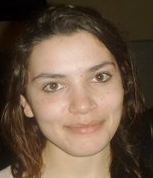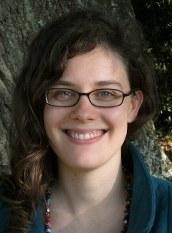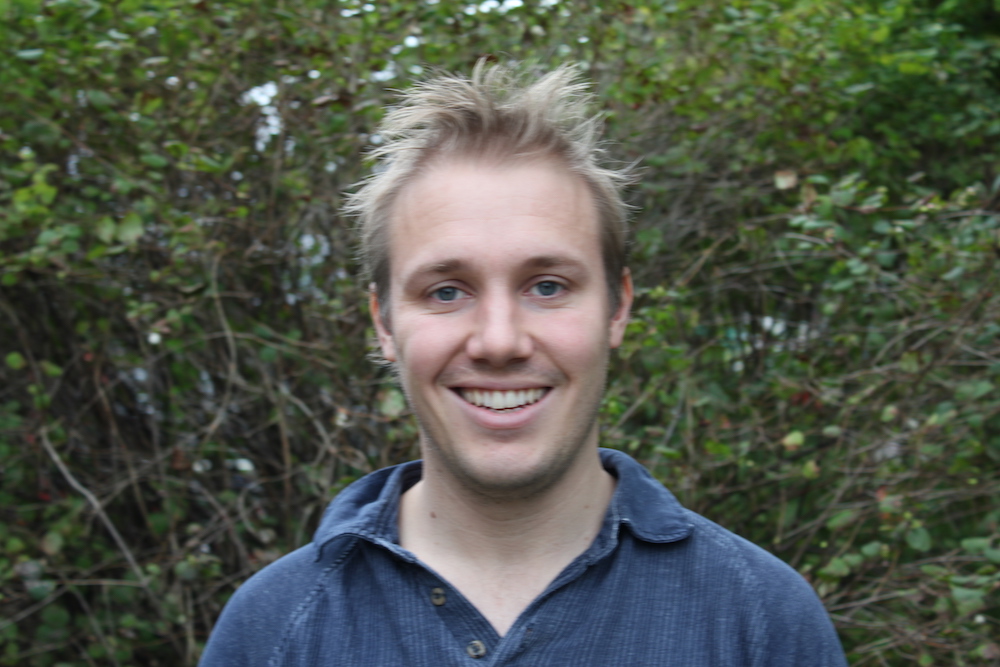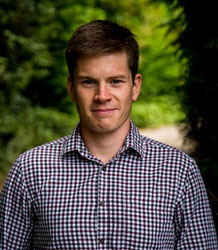

Social, Economic and Technological Research
How do sociological systems, which may be dynamic, large-scale, decentralised organisations in their own right, operate in conjunction with the social organisations that design, develop, deploy, and utilise them.
 Domain Visualisation Examples
Domain Visualisation Examples
Social Organisation
Complex systems modelling within business and management is in its infancy. The classic econometric and psychometric techniques focus on the measurement of variables and the statistical analysis of the relationships between those variables. Complex systems modelling leads us to examine instead behaviour and interaction among the agents that comprise the system. This perspective shift opens new opportunities for researchers to make ground-breaking advances in the business and management literature regarding, not just B2B, but how business organisations compete and cooperate to build marketplaces.
Key Contacts
- Elisabeth zu-Erbach-Schoenberg
- Camillia Zedan
- Laurens Speelman
- Iain Weaver
- Simon Tudge
Thesis: Empirical Analysis Of Migration In Small Islands : The Role Of Environmental And Social Factors - Laurens Speelman
Thesis: Macroscopic Principles For The Self-Organisation Of Complex Ecosystems - Iain Weaver
Thesis: Game Theoretic Treatments Of Social Niche Construction : How Do The Conditions For Cooperation Evolve? - Simon Tudge
Thesis: Competition, Cascades and Connectivity : the Effect of Mergers on the Global Economy - Camillia Zedan
 There is an increasing trend towards global financial consolidation. Empirical evidence has shown that though consolidation can increase market efficiency, it can also increase systemic risk. Therefore, understanding the effects of company mergers on the global economy is an increasingly pertinent issue. The research presented in this thesis aims to explore the effects that mergers can have on interconnected markets. It will also suggest potentially stabilising market conditions that can reduce the risks associated with competitive production. An agent-based model of endogenous merger formation in a simulated market is developed. The dynamics of the model are investigated, and the conditions are identified under which market competition is sufficiently disrupted to prompt extended periods during which mergers are desirable. The model is used to demonstrate how merger waves can be created through industry shocks and firm overconfidence. This single-market model is then extended to one of multiple markets connected through supply chains. The conditions under which merger waves can spread along these pathways are found. The effect of introducing inter-market dependencies on market behaviour is also investigated. Finally, the model is developed into a closed system in which agents react to changes in demand by varying their production quantities. Although this is found to increase the average market profitability, it has a significant effect on market behaviour.
There is an increasing trend towards global financial consolidation. Empirical evidence has shown that though consolidation can increase market efficiency, it can also increase systemic risk. Therefore, understanding the effects of company mergers on the global economy is an increasingly pertinent issue. The research presented in this thesis aims to explore the effects that mergers can have on interconnected markets. It will also suggest potentially stabilising market conditions that can reduce the risks associated with competitive production. An agent-based model of endogenous merger formation in a simulated market is developed. The dynamics of the model are investigated, and the conditions are identified under which market competition is sufficiently disrupted to prompt extended periods during which mergers are desirable. The model is used to demonstrate how merger waves can be created through industry shocks and firm overconfidence. This single-market model is then extended to one of multiple markets connected through supply chains. The conditions under which merger waves can spread along these pathways are found. The effect of introducing inter-market dependencies on market behaviour is also investigated. Finally, the model is developed into a closed system in which agents react to changes in demand by varying their production quantities. Although this is found to increase the average market profitability, it has a significant effect on market behaviour.
Publications, e.g.,
- Zedan, Camillia. "Competition, cascades and connectivity: a multi-market model of endogenous mergers." (2012)
- Spatial Mobility in the Formation of Agent-Based Economic Networks
- The Role of Information in Price Discovery
Thesis: Dynamics and Stability of Small Social Networks - Elisabeth zu-Erbach-Schoenberg
 For my PhD I have been working on the simulation of processes happening on social networks and the dynamic changes of these social networks. My main focus were agent-based models of social network fragmentation, modelling cases where a previously connected network splits up into two or more components following a disagreement of two actors.
For my PhD I have been working on the simulation of processes happening on social networks and the dynamic changes of these social networks. My main focus were agent-based models of social network fragmentation, modelling cases where a previously connected network splits up into two or more components following a disagreement of two actors.
In some situations this splitting of the social network can be explained as individuals actively choosing sides, but frequently it is the same individual behaviour that first maintains and later splits the network. I am researching behavioural rules and structural constraints that lead to networks exhibiting this phenomenon. One such constraint is the spatial embedding of the nodes in space and I am investigating how the spatial arrangement influences the network topology as well as the robustness looking for potential interventions that could make social networks less fragile and more coherent.
Demography and Social Policy
The unprecedented pace of population ageing will mark the demographic reality of the developed countries. The ONS predicts that by 2058 the population aged 65 or over will increase from today's 16% (2010) to circa 25%. The reasons underlying these changes are complex, as are the challenges facing policymakers. A critical question is how to provide adequate health care and social protection, particularly as the care workforce itself is ageing. In an increasingly interconnected social world, the analytical tools traditionally used to aid policy making are insufficient. In the ICSS, we drive the quest for new analytical frameworks to more efficiently deal with the inherent complexities of the demographic processes and their policy implications.
Key Contacts
- Jonathan Gray
- Jason Hilton
- Vincent Marmion
Theis: Managing Uncertainty in Agent-based Demographic Models - Jason Hilton
Thesis: Decision Theoretic Agent-based Modelling in Demography - Jonathan Gray
 This thesis consists of three papers, which address Agent-Based Modelling (AM) as a methodology in demography, focusing on the modelling of decision making processes. The discussion begins by assessing the utility of AM as a methodology and some of the issues peculiar to it, and argues that the modelling of choice is of special significance in the demographic context. Of the three papers, the first one outlines an approach to model development combining aspects of game theory, and decision theory. It then contrasts the effect of four choice models on the behaviour of a simulation based on qualitative accounts of the disclosure behaviours surrounding alcohol misuse in pregnancy. The second paper applies this approach to help-seeking in older adult care, drawing on survey data to parameterise and validate the model. Simulation results, and variance-based sensitivity analysis indicate that a model of decision making which incorporates a representation of the interactions between agents are necessary to reproduce observed rates of caregiving. The third paper reports experiments designed to validate the choice behaviour of agents in the older adult care model. I examine human decision making about paired gambles from experience, where the pair has some features common to both choices. I report results for eight decision problems undertaken by 20 participants, and contrast the predictive ability of four models of decision making. I then estimate parameters to maximise the fit where possible, and find that while the best performance is offered by decision models with a representation of the problem, they do not offer a significant advantage over heuristic methods. I discuss the implications of this, in the context of the original agent-based model, and for agent-based modelling more generally.
This thesis consists of three papers, which address Agent-Based Modelling (AM) as a methodology in demography, focusing on the modelling of decision making processes. The discussion begins by assessing the utility of AM as a methodology and some of the issues peculiar to it, and argues that the modelling of choice is of special significance in the demographic context. Of the three papers, the first one outlines an approach to model development combining aspects of game theory, and decision theory. It then contrasts the effect of four choice models on the behaviour of a simulation based on qualitative accounts of the disclosure behaviours surrounding alcohol misuse in pregnancy. The second paper applies this approach to help-seeking in older adult care, drawing on survey data to parameterise and validate the model. Simulation results, and variance-based sensitivity analysis indicate that a model of decision making which incorporates a representation of the interactions between agents are necessary to reproduce observed rates of caregiving. The third paper reports experiments designed to validate the choice behaviour of agents in the older adult care model. I examine human decision making about paired gambles from experience, where the pair has some features common to both choices. I report results for eight decision problems undertaken by 20 participants, and contrast the predictive ability of four models of decision making. I then estimate parameters to maximise the fit where possible, and find that while the best performance is offered by decision models with a representation of the problem, they do not offer a significant advantage over heuristic methods. I discuss the implications of this, in the context of the original agent-based model, and for agent-based modelling more generally.
Publications, e.g.,
- Deciding to Disclose: A Decision Theoretic Agent Model of Pregnancy and Alcohol Misuse J Gray, J Bijak, S Bullock Agent-Based Modelling in Population Studies 41, 301-340
- Choosing the choice: Reflections on modelling decisions and behaviour in demographic agent-based models J Gray, J Hilton, J Bijak Population Studies 71 (sup1), 85-97
- Marmion V., Bishop F., Millard D.E., Stevenage S.V. (2017) The Cognitive Heuristics Behind Disclosure Decisions. In: Ciampaglia G., Mashhadi A., Yasseri T. (eds) Social Informatics. SocInfo 2017. Lecture Notes in Computer Science, vol 10539. Springer, Cham
Economics and Finance
Economists that assume simple and clear behaviour and relationships, e.g. rational agents and efficient markets, give rise to tractable and occasionally elegant mathematical models. However, many real-world financial occurrences remain unexplained. The complex systems approach to modelling financial markets divides into two categories. Agent-based models emulate the ecology of financial markets. For instance, the fast-growing field of Behavioural Finance provides a source of potential agent attributes, habits, and biases. Modelling the interaction of these agents enables us to simulate financial markets. Alternatively, financial market modelling using the empirical per-second trade data, arising from actual financial trading, is a rich tapestry of non-linear patterns and co-evolving relationships.
Key Contacts
- Bob De Caux
- Camillia Zedan
Understanding Risk in Banking Networks Using Agent Based Modelling
 Bob De Caux
The main focus of my research was on banking regulation, specifically for the hidden or “systemic” risks that build up in the network of banks over time due to them being so interconnected via complex contracts. I used multi-agent modelling that combines micro-level dynamics with endogenous learning, to allow agents to strategise against each other. This allowed me to gain an understanding of the "social cost" of poor regulation, in terms of how actually banks behave relative to how the regulator would like them to behave.
Bob De Caux
The main focus of my research was on banking regulation, specifically for the hidden or “systemic” risks that build up in the network of banks over time due to them being so interconnected via complex contracts. I used multi-agent modelling that combines micro-level dynamics with endogenous learning, to allow agents to strategise against each other. This allowed me to gain an understanding of the "social cost" of poor regulation, in terms of how actually banks behave relative to how the regulator would like them to behave.
Publications, e.g.,
- De Caux, R., McGroarty, F. and Brede, M. (2017) The evolution of risk and bailout strategy in banking systems. Physica A: Statistical Mechanics and its Applications, 468:109-118.
- De Caux, R., Brede, M. and McGroarty, F. (2016) Payment prioritisation and liquidity risk in collateralised interbank payment systems. Jnl. of Intl. Financial Markets, Institutions and Money, 41(C):139-150
Language and Learning
Linguistic research is traditionally clearly delimited, focusing on specific aspects of language, its acquisition, and its use. However, the interactions between innate 'hardwired' linguistic knowledge, psycholinguistic processing mechanisms, non-linguistic cognitive systems, and linguistic, sociocultural, educational, or physical context may result in linguistic systems exhibiting complex nonlinear behaviour. Mapping these components and the interactions between them is of central importance to future understandings of grammars, language use, acquisition, and learning.
Key Contacts
- Lewys Brace
- Massimo Stella
Thesis: An Investigation into the Influence of Population Structures and Dynamics on the Emergence of Linguistic Systems Through Iterated Learning
 Lewys Brace
My PhD research involved looking at the social-cultural evolutionary process of iterated learning through agent-based modelling (ABM). Iterated learning takes place when the input into a particular individual's learning process is itself the output of another individual's learning process. This is an important feature to capture when investigating human language change, or the dynamics of culturally learned behaviours in general. By developing a number of computational simulations, I not only demonstrated that this process has a significant impact upon eventual linguistic form, but that it is also significantly affected by the interconnectivity of the linguistic community. The key finding of this work was that immature language users cause linguistic change at a much higher rate, through the refinement-like process of iterated learning, when they learn their language from multiple mature language users.
Lewys Brace
My PhD research involved looking at the social-cultural evolutionary process of iterated learning through agent-based modelling (ABM). Iterated learning takes place when the input into a particular individual's learning process is itself the output of another individual's learning process. This is an important feature to capture when investigating human language change, or the dynamics of culturally learned behaviours in general. By developing a number of computational simulations, I not only demonstrated that this process has a significant impact upon eventual linguistic form, but that it is also significantly affected by the interconnectivity of the linguistic community. The key finding of this work was that immature language users cause linguistic change at a much higher rate, through the refinement-like process of iterated learning, when they learn their language from multiple mature language users.
Publications, e.g.,
- Brace LG, Bullock S (2016). Understanding Language Evolution in Overlapping Generations of Reinforcement Learning Agents. Artificial Life. Cancun, Mexico.
- Brace LG, Bullock S, Noble J (2015). Achieving Compositional Language in a Population of Iterated Learners. Artificial Life. York, UK
